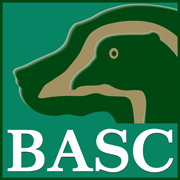 BASC is advising members of an increase in the risk of an outbreak of Newcastle Disease (ND) in the UK.
BASC is advising members of an increase in the risk of an outbreak of Newcastle Disease (ND) in the UK.
Defra says there have been several recently reported outbreaks in commercial poultry and smallholder flocks in Belgium, the Netherlands and Luxembourg and the Animal and Plant Health Agency has raised the risk of ND occurring in the UK from low to medium – meaning ‘outbreak likely to occur’.
Newcastle Disease is the only disease of birds notifiable in the UK other than Avian Influenza (AI). It is normally absent here but can occur every few years. It is a viral infection and kills some, occasionally most, birds in flocks it infects. Gamebirds are vulnerable, as are chickens, turkeys and other poultry. Control measures applied during outbreaks are much the same as for AI and can therefore lead to movement restrictions and potential business disruption.
Glynn Evans, BASC’s head of game and deer management, said: “This is potentially a serious issue and we would advise members to follow the advice issued by Defra”.
All bird keepers, including gamebird keepers, are being urged by government to keep an eye on birds for clinical signs of Newcastle Disease. Affected birds may show some of the following signs. (The most severe signs will appear in fully susceptible birds i.e. unvaccinated birds or those with poor vaccine protection):
- Respiratory distress such as open-beak breathing, coughing, sneezing, gurgling, rattling
- Nervous signs characterised by tremors and paralysis and twisting of the neck
- Unusually watery faeces (diarrhoea) that are yellowish-green in colour
- Depression
- Lack of appetite
- Affected birds may also suddenly produce fewer eggs. Eggs that are laid may be misshapen and soft-shelled.
- Disease may be severe resulting in dramatic mortality in a large proportion of birds. Or it may have a lesser affect, with breathing problems and lower egg production being the only detectable clinical signs.
Defra’s Advice to Gamebird Keepers and Vets:
- Keep an eye on your birds for the signs of Newcastle Disease (above)
- Maintain best practice biosecurity on your premises
- Talk to your vet if you have any concerns and to discuss vaccination strategy
- Make use of disinfectant footbaths on entering and leaving bird areas
- Ensure you use a vet who is familiar with commercial poultry/gamebirds who can give you advice on disease control
- This strain of Newcastle Disease is particularly virulent and has not recently been seen in North Western Europe
- This strain appears to be transmissible even in vaccinated birds – though with supressed clinical signs
- Mortality rates in Belgium were 10-20% of birds in affected flocks (even in vaccinated flocks)
- Vets and gamebird keepers should ensure that breeding game birds are effectively vaccinated
- Any vaccination boosters should be administered as per manufacturers recommendation
- Vaccination protocols must be suited to the type and age of bird (injectable/oral/spray)
- Ensure correct storage and administration of vaccines is carried out.
- Gamebird rearers should consider vaccinating birds during the rearing cycle
ENDS